Kaiser Permanente member Brian Evans and his wife Natalie say the care he received at the Kaiser Permanente Medical Center in Richmond was nothing short of lifesaving. Pictured, the 2 surrounded by some of the many staff members who cared for Brian when he was critically ill.
When Brian Evans recently walked into the Intensive Care Unit (ICU) at the Kaiser Permanente Medical Center in Richmond, he was greeted with hugs, handshakes, and a little bit of the best kind of disbelief.
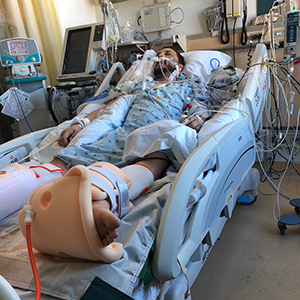
That’s because the Kaiser Permanente nurses and staff who greeted him had cared for him just 5 months ago — when he was on life support and in a medically induced coma.
“He was our sickest patient,” explained Mohammad Mojadidi, RN, ICU nurse manager. “Many of us were wondering if he would survive and what his life would be like if he made it out of the hospital.”
Brian is a 36-year-old father of 2, an account manager at an online advertising firm, and a healthy guy who had never had a serious illness — until last February.
That’s when he was admitted to the ICU with a diagnosis of pneumonia, septic shock, and dehydration that quickly progressed to a life-threatening case of Acute Respiratory Distress Syndrome, or ARDS.
Rapid Decline, Lifesaving Actions
The day Brian was admitted to the hospital, his wife Natalie arrived home from work to find him acting strangely. He had been sick for 3 or 4 days with what appeared to be the flu. That evening, she found him pale, slurring his speech, and hallucinating.
Natalie, who is an employee of The Permanente Medical Group, spoke with a Kaiser Permanente advice nurse by phone, and then drove Brian to the Emergency Department in Richmond.
“Brian was able to walk into the ER. Not once had I imagined that he would not be walking out with me,” she said.
Less than 36 hours later, while in the ICU, Brian took a turn for the worse. He aspirated, quickly began to decline, and nearly died.
“Dr. Doug Ammerman made the life-saving call to intubate Brian, so he could breathe with the help of a ventilator, start him on paralytics, and place him in a medically induced coma to help his lungs heal,” Natalie explained. “I will never forget crying in the hallway outside the ICU. I had never been so scared in my life. Brian is my best friend, and he was in a coma and on life support.”
All Hands on Deck
Together with Brian’s brother and mom, Natalie spent nearly every waking hour in the ICU.
“What I saw was precision,” Natalie said. “They did not miss a beat — not one nurse, not one doctor — they knew what he needed before he needed it.”
“He had the attention of a whole host of our physicians,” Mojadidi said. “Not just the hospitalists and intensivists who were on shift, but a good number of consulting doctors as well. It was all hands on deck.”
Brian suffered some setbacks while in the ICU, but he gradually improved, was weaned off sedation, and in early March, his breathing tube was removed.
“When they took the tube out, the first thing he said after mumbling a word that sounded like ‘lucky’ was, ‘I guess I’m pretty lucky,’” Natalie recalled.
Brian spent another week in the hospital and in a skilled nursing facility before transferring to the Kaiser Foundation Rehabilitation Center (KFRC) in Vallejo, where he spent 9 days regaining his strength and his ability to take care of himself.
“Every single caregiver was great,” Brian said. “Every doctor and every nurse at the Richmond ICU and KFRC is comparable to the best doctors and nurses at any other hospital.”
The Heroes and Angels of the ICU
Brian’s illness took a heavy toll on his body. When he left the ICU, he was 40 pounds lighter than when he was admitted, and he could hardly move his head or lift his hands.
Today, he said he’s doing great. He’s back to work, camping with his family, and feeling almost 100 percent.
“The only thing lacking is stamina. I tire easily, but I am hoping to have a full recovery.”
Brian and Natalie returned to the Richmond ICU for a visit in April and again in July to see the people who saved his life.
“I’m so grateful,” she said. “There are heroes and angels working here.”
Brian said simply, “I just wanted the staff to see how well I am doing. I wanted to tell them thank you.”
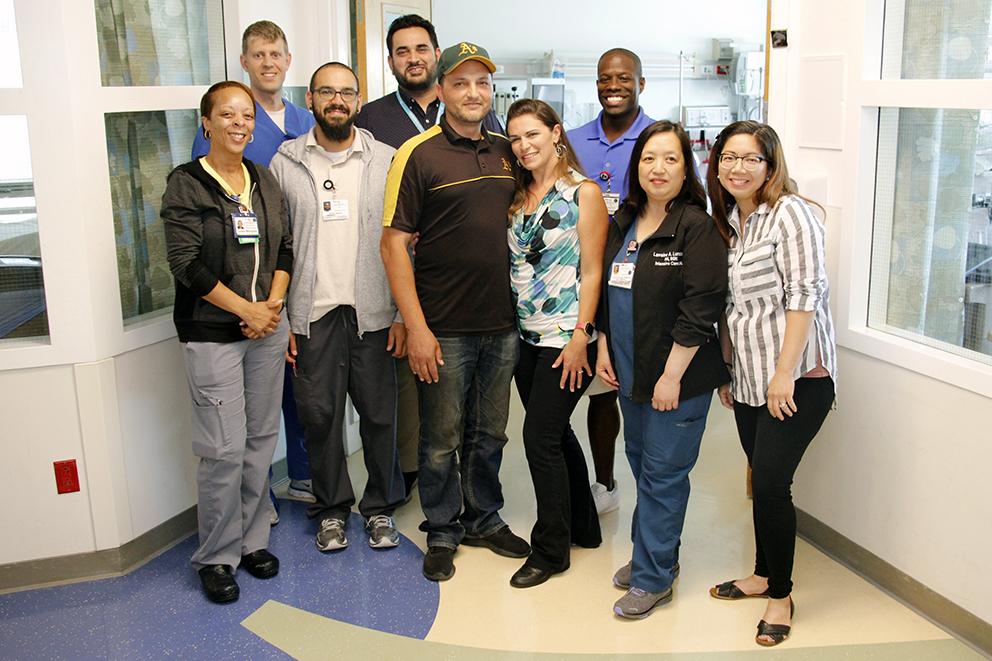
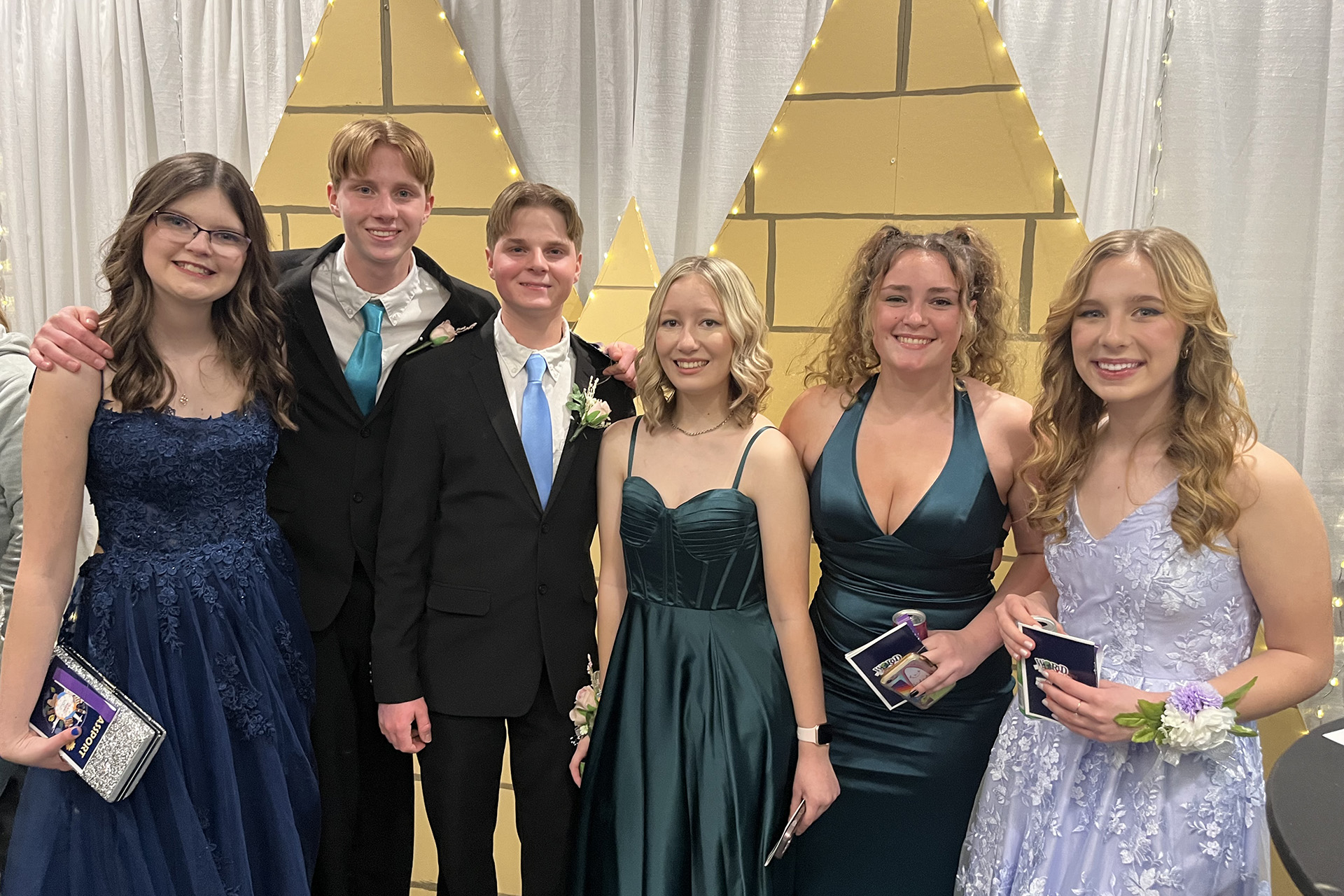
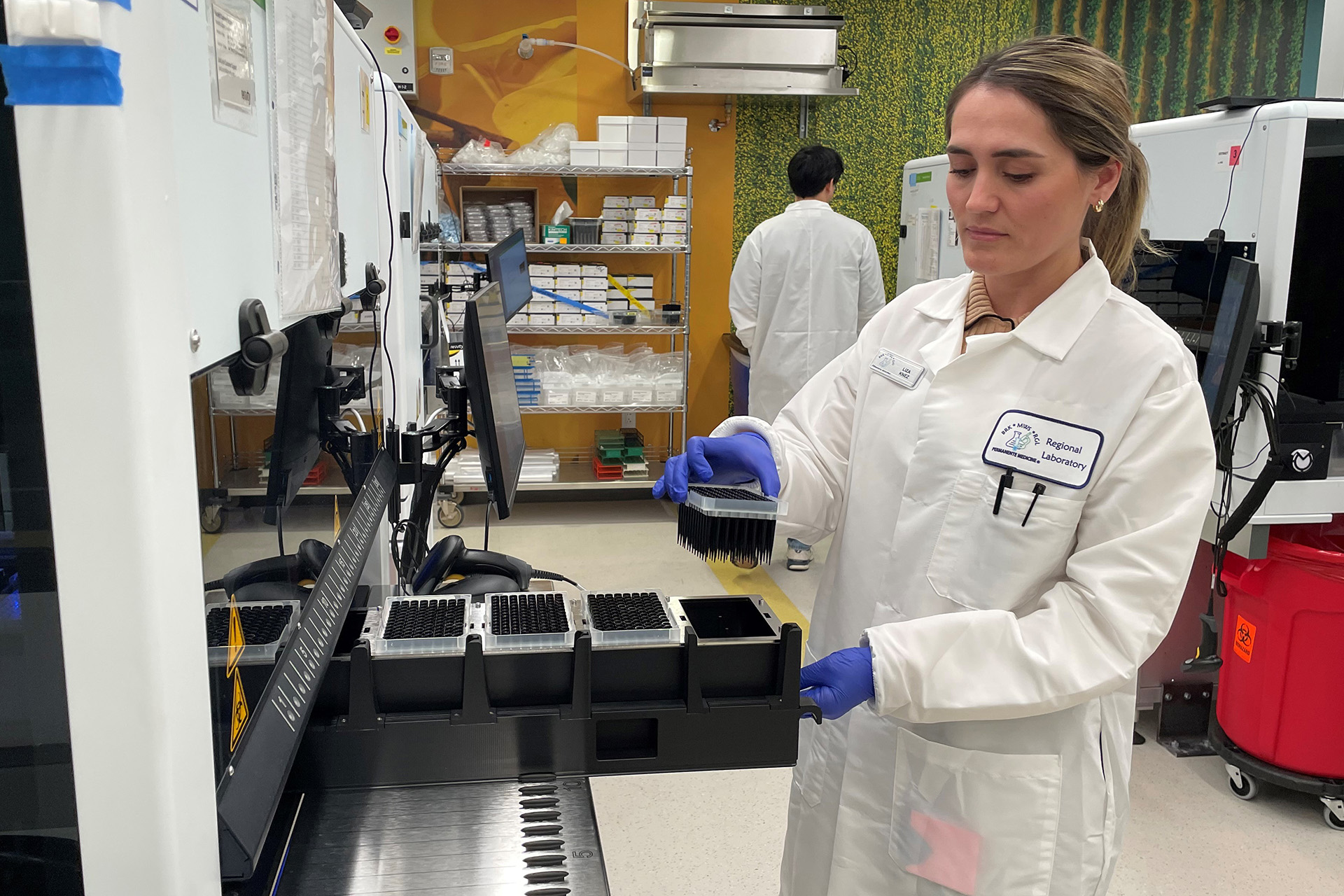
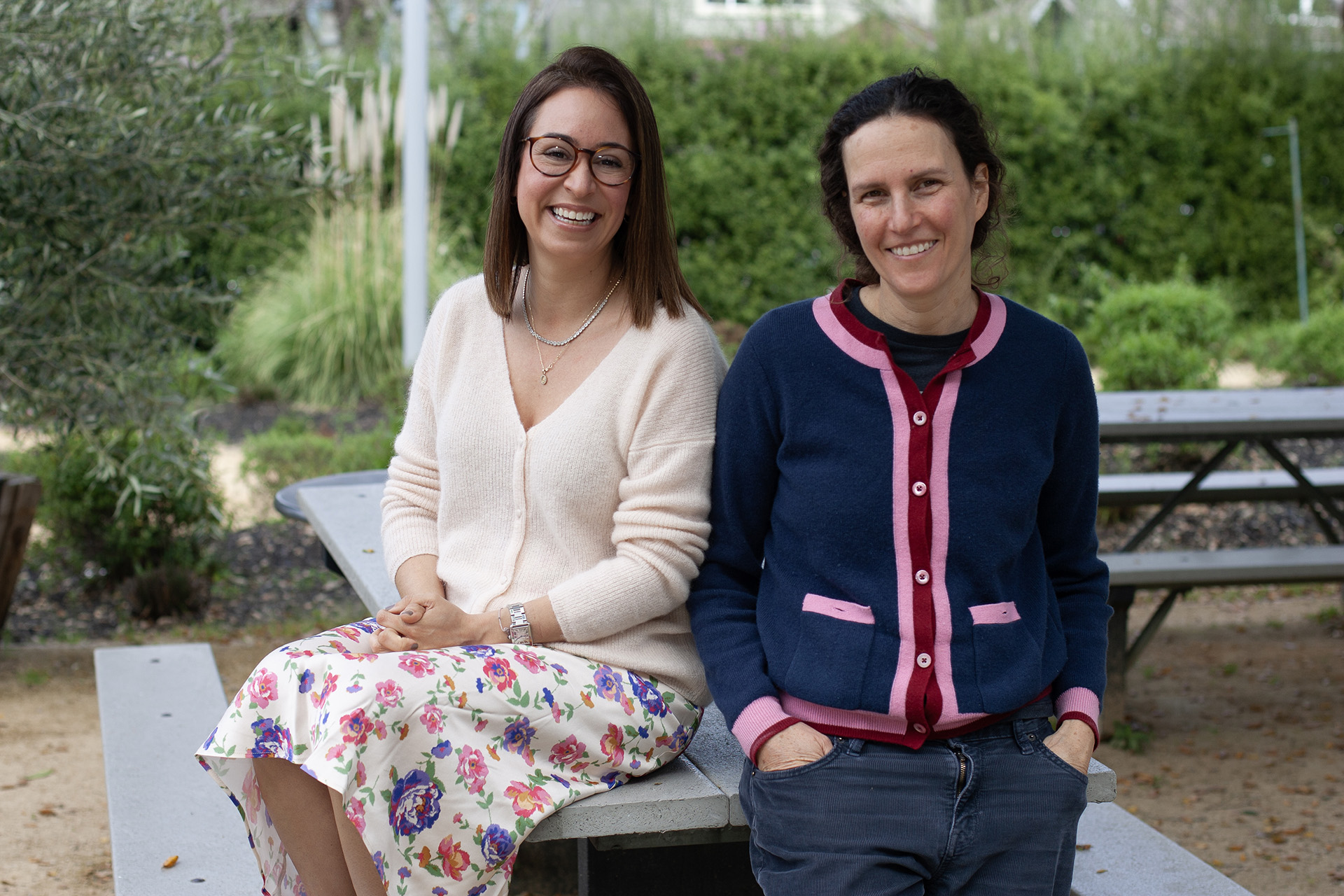
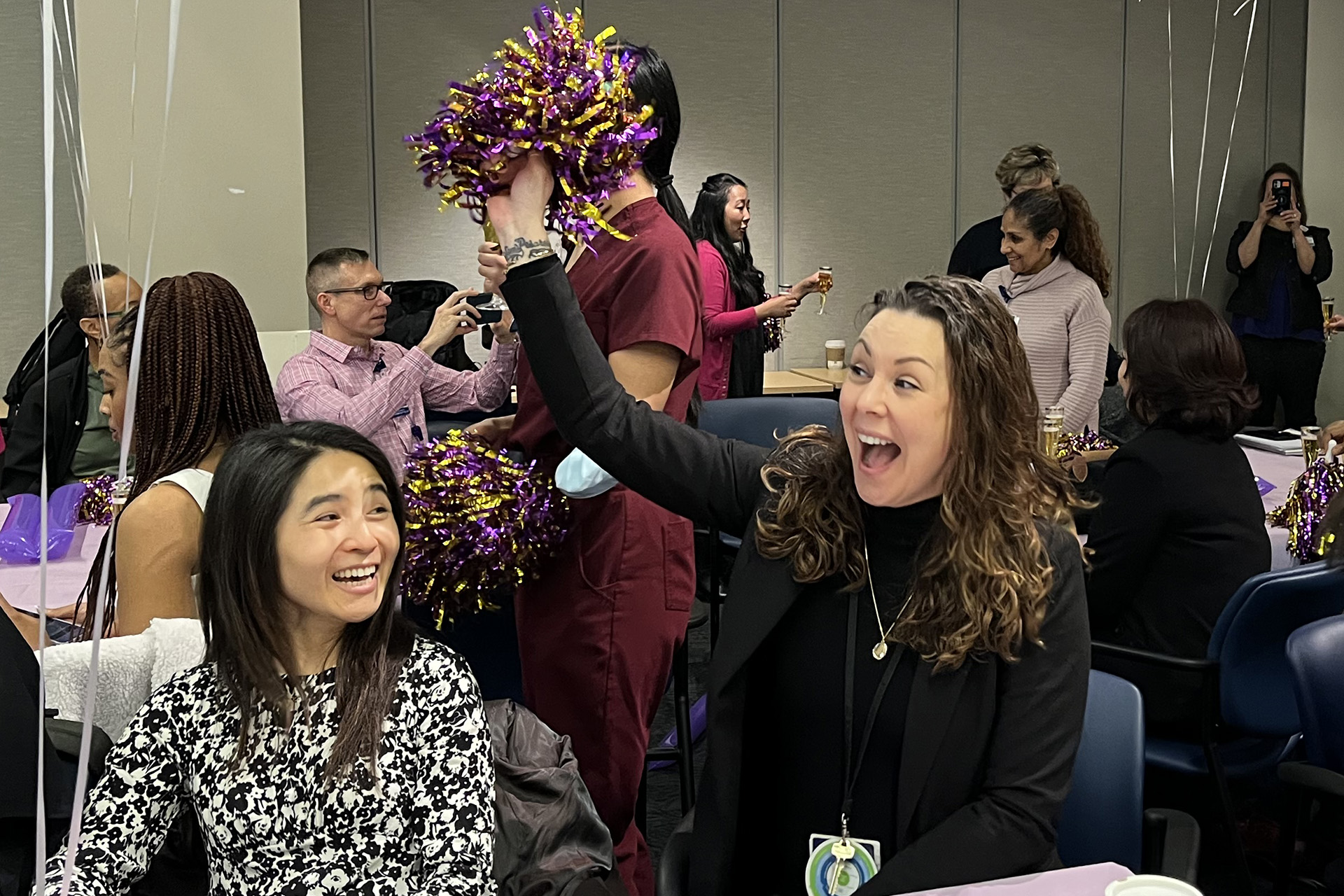
This Post Has 6 Comments
That was so heartwarming. Glad to hear that Brian is doing well!
Thanks to the Richmond employees – all of you rock. Great job. We need more people like you. God bless.
Awesome job, Kaiser members.
What a happy ending! Great job, Richmond! And continued health to Brian!
What great teamwork KP Richmond! Good job.
Big thanks to the wonderful team in Richmond for doing such a great job!